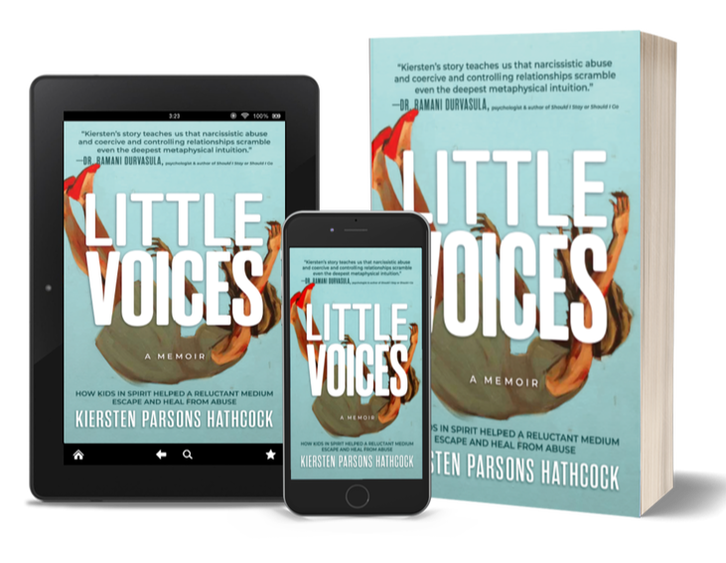|
One of the most beautiful things to come out of surviving relationship abuse is the connection to others who went through something similar or are currently struggling to get out, like I was in early 2017..
Just this past week, a woman I’ve known for a while reached out sharing her latest journey through a relationship wrought with abuse and manipulation. She did what I did only with a different man: she broke up with him and then went back only to find there hasn’t been any real change. I remember how confusing it was for me to believe the promises only to realize I was trapped in a hamster wheel of pain and abuse. In fact, I’d packed up his stuff TWICE in a year’s time only to take him back both times. The hardest part about it was everyone around me knew what was happening but I was still stuck in a cycle that I didn’t understand. Those of us who have been through it get it. Somewhere inside, we know it’s not rational but we can’t quite figure out why we keep giving the abusive partner more chances. It seems black and white to outsiders but to us, it feels like we’re living in a thick fog unable to see why something that felt so right went so wrong. For those of you dealing with this right now, I have some advice that I hope will help. First of all, don’t shame yourself for believing in the good in people and trying to make it work. There are multiple reasons you’re doing what you’re doing that you probably don’t have a firm grasp on right now. Some of it could even be subconscious. You have a big heart and you’re used to giving people the benefit of the doubt. It’s not a crime; you’re a compassionate, caring person who does everything possible to make a relationship work. Know that the rush you feel from working things out and getting back together even though you suspect deep down it will cycle back to abuse again is a physiological reaction caused by chemicals in your body. It’s called trauma bonding and it makes you physiologically addicted to the abuse. It explains why the thought of going “no contact” with your partner makes you feel terrified and like you’re coming off a drug. If you, like me, had never been addicted to drugs or alcohol prior to the abusive relationship, you might not even recognize the “high” as a high. You just feel like you went back to normal—the stage where you aren’t being blamed, shamed, yelled at, and abused. I couldn’t put my finger on why I couldn’t escape the cycle easily even though, during times of abuse, I would get angry and stand up for myself and recognize that what I was going through wasn’t right, normal, or healthy. I didn’t fully comprehend that I was trauma bonded to him. Trauma bonding is a chemical bond created by the intermittent release of stress hormones and pleasure hormones caused by the abuser running hot and cold (aka, Dr. Jekyll and Mr. Hyde). Your adrenals get confused as you deal with the flip flop of emotions but you have no clue that your resistance to leaving the relationship is likely 75% chemical. You’re not just dealing with your broken heart, you’re fighting a physiological battle you didn’t even know was raging in your body. The only way to heal and bring your body back into balance is to get off the rollercoaster. There’s no magic pill, sadly, to bring you back to the state where you aren’t experiencing all of the oxytocin (bonding), endogenous opioids (pleasure, pain, withdrawal, dependence), corticotropin-releasing factor (withdrawal, stress), and dopamine (craving, seeking, wanting) without once and for all getting out of the relationship. You have to remove yourself from the situation when you’re ready and go no contact (if you do not have children with him/her) no matter how hard it might feel at the time. You’ve unknowingly been groomed to become addicted to the highs and lows which quite literally changes the way your brain/body functions. I can remember one telephone conversation where he was yelling at me—screaming at me— on the phone from the East Coast and I was shaking and crying uncontrollably and apologizing even though I knew I didn’t do anything wrong. I knew it was the only way to make it all stop. What shocked me was every time he would hang up, I would dial him back up again. Who does that?!?! Why was I willing to subject myself to more yelling and screaming? Addiction, that’s why. I kept hoping (craving) to get to that point where he would calm down and I’d get that chemical release when the calm finally washed over us after a fight. If you can understand that what you’re feeling is heavily influenced by the effects of trauma bonding chemicals, you will have a much easier time getting out. To all of the women (and men) I know who know they are in abusive relationships but can’t seem to get out and stay out, I hope this helps. It was the one thing that finally made sense to me when I started to understand the bigger picture of what I had experienced and gotten used to for three years. It helped me recognize when I would feel cravings to reach back out to him. Logically, it made no sense but the chemicals were sure telling me that I needed that fix, again. It took about six months for my body to calm down after I finally went no contact and now, looking back, I can see how powerful a drug this type of relationship is for so many. For more information on this very topic, check out these additional articles: https://www.psychologytoday.com/us/blog/neurosagacity/201701/the-brain-can-work-against-abuse-victims https://www.businessinsider.com/trauma-bonding-explains-why-people-often-stay-in-abusive-relationships-2017-8?r=UK&IR=T
0 Comments
|
Categories
All
Archives
June 2024
|
|
All rights reserved. 2022.
|


 RSS Feed
RSS Feed



